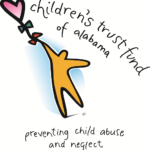Because of the great influence that volunteers have on APC’s initiatives and mission, we have begun to tell their stories. There is power beyond words when one is brave enough to allow their story to shape the culture around them. Our mantra at APC is “Fighting Addiction Face to Face.” We find great value in telling stories and allowing others to see the faces behind the work. Although it may help, addiction is not fought in remedies that only meet physical needs. To fully uproot the disorder of Substance abuse, one must be willing to dig deeper into the true heart of one’s personhood and the struggle for identity.

One of our highly involved and influential volunteers at APC is Art Wimberly who has identified this larger issue of Addiction and has begun to unravel the heart of what it means to be sober and find healing from the pain that SUD and addicted loved ones can have.
Art Wimberly, husband to Carie Wimberly who is the Director of Operations for APC, has served alongside APC for three years now. From leading Enneagram 12-step Recovery groups, to helping with major and minor events, Art has given selflessly to the mission of awareness and prevention of Substance Abuse during this time. Both Carie and Art personally found their lives rattled by the effects of addiction with loved ones over 2 decades ago. Through APC, the Wimberly’s have been able to use their past struggles to result in providing support and awareness to parents of addicted loved ones through the PAL Support Groups.
Art shares that his recovery story originally began 20 years ago when he and Carie were faced with the reality of 2 of their children dealing with substance use disorder. They found themselves in support groups in search of stability and in attempts to survive the horror story of watching one’s child engulfed in self destructive behaviors. Carie reflects on this season saying,
“As a parent dealing with a child struggling with SUD, there is a great deal of guilt and shame that comes with that territory. You know you have made mistakes parenting and you wonder if your failures led to their addiction and that can haunt you. That guilt and shame led us initially to isolation and that was not a good place for us, for our family, our marriage and ultimately for our sons who were struggling.”
It was after three years that Art said, “I began to realize that recovery was just as much about me as it was about the children.” He began to unpack things in his own life that were hindering him from experiencing healing and wholeness so that he could be the parent he wanted to be. In experiencing the personal benefits of recovery, not just for his family but also himself, Art began to examine what this could look like for the church.

Carie relates on this season saying, “As we dove deep into recovery ourselves, God brought others into our lives that we could share our journey with. That led to leadership in 12 Step Recovery groups in churches and over time we were part of planting and leading 12 Step Recovery groups in 3 different churches.”
More recently, Art has discovered many links in the recovery program and the information he has been learning regarding the enneagram. Art is currently finishing up his certification with the ICB (Institute for Conscious Being) Scholars Program. As the Enneagram has gained publicity throughout the past few years, the personality analysis has morphed into something that is tied to one’s image. However, originally, the intent of the Enneagram was focused on taking apart one’s ego and discovering who you were originally meant to be. When asked about how Recovery and the Enneagram connect, Art explains that addiction is the struggle for identity and the enneagram is made to help connect an individual to their real identity. “Finding your enneagram number is the beginning of the journey…Ultimately there is no such thing as a type 1 or 7, it is solely a description of an ego that helped us cope throughout our lives.” Although this is an approach contrary to the cultural perspective, it fits hand in hand with the steps of recovery toward true and wholistic healing.
Once a week, Art hosts two different recovery groups for men, focusing on this 12 Step Recovery along with the Enneagram. This 8-month program results in immense growth and change in the lives of the men who dare to begin the journey. Art explains the impact of the program stating,
“Those that go through the Enneagram/12 Step immersion group – and really do the work along the way – often come out with increased self-awareness, more insight into others, and a deeper spiritual connection. In addition, many seem to have gained a new level of compassion, both for themselves and the other people in their life.”
It is here, by pursuing transformation of the individual, recovery is no longer only about substance abuse and quitting it, but primarily focused on wholistic and permanent transformation of the individual. Art not only walks alongside men who are dealing with SUD and its effects, but he also sacrifices time for APC through volunteering at events such as the END HEROIN BHAM walk. Seeing it as a way to give back, Art is passionate about experiencing a spiritual awakening in those he is ministering to. Within the large mission of APC, there is great need for the help and resources of our volunteers, and we are incredibly thankful for all they contribute to the mission of ending addiction by fighting it face to face.
If you are interested in Joining the Coalition and Volunteering, click here!








